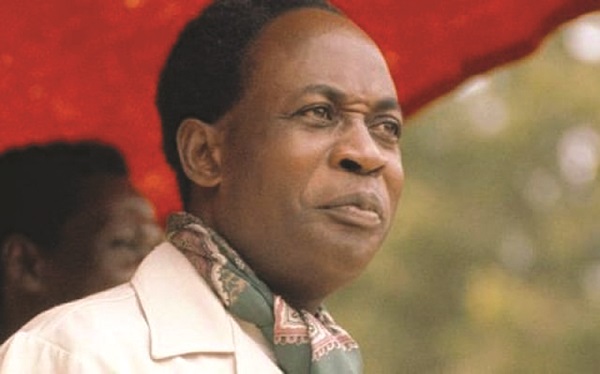NDC Could Be CPP In Disguise
Osagyefo Dr. Kwame Nkrumah might be turning in his grave 51 years after his death. He saw and heard efforts to decimate his legacy whilst he was in exile. This was occasioned by his overthrow in 1966 as the opponents of his political establishment sought to efface his legacy with a ban on their operations or simply outlaw them.
The pushback on Nkrumah came up against an earlier declaration he made about himself, to wit, ”Nkrumah never dies.” Obviously, Nkrumah was coming from the angle of human beliefs and opinions that have become part of and shaped their personalities. Psychologists hold the view that an opinion is a private property even the law cannot seize. In this wise, the Ghanaian political torchbearer made the case that bonds that are spiritual are unassailable.
Even though he was named Africa’s man of the century ahead of South Africa’s Nelson Mandela and Ethiopia’s Haile Selassie, thus depicting his weight as the continent’s most recognized potentate, back home in Ghana he looks like the irony of the continental picture. The tradition he led to champion the liberation struggle not only for Ghana but the whole of Africa, has shrunk to a size smaller than the miniature of its original form, and here the reference is the Convention Peoples Party, CPP.
Most pioneers of CPP in Nkrumah’s generation have kicked the bucket, leaving their belief systems as bequeaths to their descendants. Keen watchers of Ghana’s political scene and indeed, the fishes in the water are claiming that what exists of CPP in the literal sense is only symbolic, which is why the party has failed to make an impact in successive Ghana elections in the fourth republic. They rather point to the National Democratic Congress, NDC, as the new haven and sanctuary for CPP activists.
Elements of the CPP had found the NDC group as the closest ideological bedfellows and thus headed in that direction, in the wake of the military’s long haul of power after dispossessing the PNP, which was CPP-affiliated, of a short stint in 1981. The military takeover which brought Flt. Lt. Jerry John Rawlings’s PNDC rode to power on a popular crest wave, eventually becoming the NDC when he switched to civilian rule in 1993.
CPP operatives who took political shelter under the almost 20-year rule of Rawlings cooled off from the CPP. Having shown ample interest in rehabilitating the legacy of the CPP, the NDC became more attractive to some luminaries in the CPP and the most preferred alternative to the NPP which disavows Nkrumah.
Consequently, the CPP ailed and wobbled on only a few personnel and poor organizational structures. Information from the grapevine indicates, that the commanding heights of the NDC are either entirely under the control of the CPP or the hybrid between the CPP and those who believe in the mantra of Rawlings. Rawlings was engulfed by the CPP in his political heydey some of whom were his closest allies. They included Captain Kojo Tsikata and Prof. Atta Mills who succeeded him as the leader of the NDC.
Flowing from the trend that shaped the current reality of the NDC, a political scientist intimates that the NDC thrived on the personal charisma of Rawlings but as it became apparent he will not be there forever, elements within the NDC quietly operated a CPP agenda for the addition of Nkrumah’s ambiance in terms of ideological clarity and to remain a mass party. They needed the disguise to court the rich countries in the western hemisphere and indeed work with them.
It remains to be seen whether the remnants of the CPP can survive in the tussle between the heavyweights unless the electorate decides to risk a change and squeeze itself into the thin valley between the NPP and the NDC, in expectation of the unknown.



